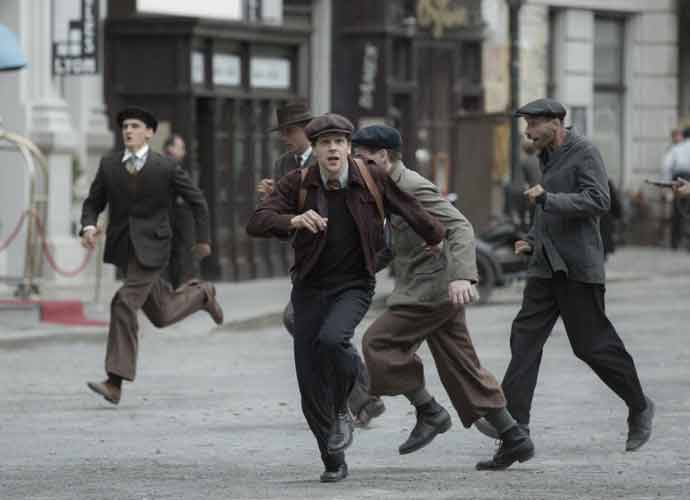‘Resistance’ Movie Review: Jesse Eisenberg Leads Stirring War Drama

3.5/5
Jesse Eisenberg‘s ability to choose his films borders on the unparalleled. Though his star has perhaps slightly faded since the days of Zombieland and The Social Network, nearly every one of his films since are worthwhile in their aspirations and interesting in their execution. Thankfully, Resistance is no different.
The film follows the Eisenberg-played Marcel Marceau — yes, that Marcel Marceau — in the days before he achieved his status as the greatest mime in human history. Marceau’s early days, first devoted to the refining of his craft, are quickly interrupted by the approaching specter of Nazism. As his native France is overrun by the Germans, Marceau joins the resistance — working to ensure the safety of Jewish children across Europe.
All of that may sound like a lot, and that’s because it is. The film, by nature of its subject material, is forced to balance being a drama, thriller, romance, and comedy at various times. Many of Marceau’s best moments come alongside his love interest Emma (played by Clémence Poésy in top form) as the two debate the merits of saving children versus fighting the Nazis directly. Also appearing in cameo form are Édgar Ramírez and Ed Harris, both of whom are allotted far too little screentime to be given anything more than a namedrop here.
The film’s tensest moments are accompanied by Klaus Barbie (given remarkable life by Matthias Schweighöfer) — the famed “Butcher of Lyon” — as he employs his ruthless tactics in an attempt to stamp out the resistance. His sheer inhumanity might sometimes come off a bit too cinematic if it weren’t all based so chillingly in reality.
The film’s seeming dedication to the truth of its subject matter might well be its partial undoing. I struggle to think of many directors who can successfully balance the artistic growth of a mime with that same mime’s participation in a covert ring of resistance fighters. Marceau’s moments of miming are initially touching but end up feeling more forced than anything later on. As talented as the man was, it’s difficult to transition from moments of Chaplin imitation to Nazi torture without some hiccups along the way.
Director Jonathan Jakubowicz mostly keeps his ship tight, however. The film has more than a few moments of visual interest and keeps things moving at a sufficient enough pace to prevent too much dwelling on its awkward transitions. The story is always engaging, even when its telling is fumbled a bit in the process.
Resistance is a good antidote to the never-ending onslaught of war films in that it shows, more than most films, the profound relationship between the individual and the collective during times of conflict. Marceau is undoubtedly a hero, but witnessing the interactions between his heroic actions and his own progression as an artist gives the film an edge that few others in its genre have.
RELATED ARTICLES
Get the most-revealing celebrity conversations with the uInterview podcast!







Leave a comment